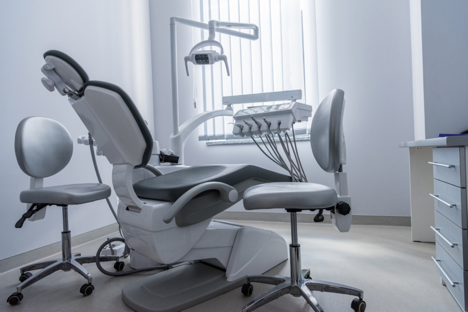*Originally Published September 10, 2016. Updated March 24, 2021.
Are you thinking about buying an existing dental practice? Before you do, you need to understand what to look for when you're evaluating a dental practice for purchase and the essential steps to take for a smooth sales process. In this post, we share all of that, together with some lesser-known secrets and advice from real dentists who have done it all before.
Key Takeaways
- Patient turnover: Expect 10–20% loss in first year after purchase
- Cash flow priority: More important than purchase price when evaluating practices
- Due diligence essentials: Financial records (3+ years), patient charts, lease terms, equipment condition
- Transition timeline: 6–12 months optimal for patient retention
- Professional team required: Practice broker, transition consultant, healthcare-specialized CPA, attorney
In this post, you will find a “buying a dental practice checklist" and learn about dental practice transitions and purchases.
We have broken this blog post into three parts:
-
Part I: Is It Worth Buying a Dental Practice?
-
Part II: Buying an Existing Practice
-
Part III: Secrets to Buying an Existing Practice (from actual dentists)
So, let's go ahead and get started and discuss how to buy a dental practice.
Is It Worth Buying a Dental Practice?
Whether you are just out of dental school or looking to expand your practice to a new area, you might consider buying a dental practice. There are some excellent reasons to do so and some potential risks you should know about. Here are some of the most significant benefits of buying an existing practice.
- You start with an established presence and patients, meaning that the potential exists to turn a profit from day one.
- You will inherit experienced staff from the previous owner. They can hit the ground running and provide continuity for patients.
- By reviewing the profit & loss statement and other financials, you will have a good idea of what to expect in your first year.
- You probably won't need to make a big investment in equipment or systems.
- You can save on marketing because you'll already have patients.
There are potential downsides as well.
- You will likely experience patient turnover between 10% and 20% in the first year.
- The same is true of staff, and it's reasonable to expect at least one experienced employee to leave.
- There may be unexpected expenses related to updating the dental website, office systems, and equipment.
- Some things about the business you buy may not meet your expectations. These could include employees' attitudes toward care and low patient compliance.

The biggest issue, which could be either a pro or a con, is that you will inherit the reputation of the dentist who preceded you. If they have an excellent reputation, that can work for you because the practice probably has a good reputation. It can also work against you because people may worry (or even assume) that you won't live up to the same standard.
Of course, there's also the challenge of buying a dental practice with a less-than-stellar reputation. In that case, you will have plenty of room to improve, but you may face an uphill battle as you work to change the public's perception of you and your services.
What this should underscore is the importance of conducting thorough due diligence before you make an offer. Your due diligence should include every aspect of the business, from financials to office systems and case acceptance rates. We'll provide more information in the next section.
Buying a Dental Practice Checklist
You should know the steps to take to buy a dental practice. If you have already opened a new practice, some of the steps may be familiar to you, while others will be different.
As with opening a new practice, you must ensure you don’t neglect any critical steps when purchasing an existing dental practice. This way, you ensure a successful sale and transition.
After reading the article, you can download the handy Buying a Dental Practice Checklist PDF (below) to keep you organized.

Check out the infographic at the bottom of this post.
1. Determine desired practice area
The first step to buying a dental practice is deciding where you want to live and work. There are a lot of considerations that go into determining this, including schools and other amenities in the area that impact the quality of life for you and your family.
You also want to know how many competing dentists there are in the area to figure out the level of market saturation. The local Chamber of Commerce could help you obtain this information. Ideally, you want to find a place where you will enjoy living, and that doesn’t already have a lot of dental competition.
Area demographics are also good to know so you can determine if your services (for example, pediatric dentistry) would be a good fit for the area.
2. Find a practice you want to purchase
Now that you know the area you want to target, it’s time to start looking for a practice to buy. To find practices for sale, seek the help of a dental practice broker. Hiring a broker is not necessary but can be helpful if you don’t want to do all the research yourself. You might also find listings of practices for sale in trade journals or postings at dental schools.
If you know any dental professionals in the area where you want to buy, you can reach out to them and ask if they know of any dentists who are considering retiring or anyone considering taking on an associate/partner who will eventually purchase the practice. If you don’t have many contacts or resources, a dental practice broker is probably a good idea.
3. Hire professional consultant(s)
Now that you have found one or more practices to consider purchasing, it’s time to hire your transition team to help you with the due diligence and the ultimate purchase.
In addition to a practice broker, you need a few other professionals to help you appraise the practice and facilitate the sale. This team could include the following.
- A transition consultant will help you analyze the practice, determine how much to offer, secure financing, and close the sale.
- An accountant who specializes in healthcare services will assist in analyzing the practice, as well as advise you on tax considerations.
- An attorney will review the sale documents and other agreements.
You will have a better chance of a smooth transition if you have professional assistance.
4. Research the practice’s financial state
The professionals you hire help you to evaluate and understand the selling dentist’s cash flow and financial information. Here are some important pieces of financial information you will want to know:
- Recent profit and loss statements
- Recent balance sheets
- Income tax returns going back at least three years
- Dental fee schedule (paying attention to fees relative to industry norms and insurance reimbursements)
- Percentage of revenues used for overhead
- A breakdown of employee expenses (salaries, benefits, payroll taxes, retirement, etc.)
- Revenues that are broken down by procedure
- Production and collection reports for each dentist and hygienist
- Financial factors such as reimbursement structure and number of employees are important for determining the practice's cash flow or how much money you'll take home at the end of the day.
You also want to know why the dentist is selling the practice. For example, you probably don’t want to buy the practice if the outgoing dentist is losing money and the patient base is shrinking.
5. Analyze the practice’s patient and treatment information
Next, you need to make sure you know everything there is to know about the practice’s patients and procedures. This includes:
- Number of active patients (that have had appointments in the last 12 to 18 months)
- Number of new patients each month
- Is the patient flow consistent throughout the month? If not, why?
- Patient demographics, including age, area code, etc.
- Most popular procedures
- Highest-yielding procedures
- Outgoing dentist's treatment philosophy
Once you know about the practice's existing patients and treatments, you’ll have a better idea of whether you can continue to serve them as they are accustomed to and how much revenue the patient base will bring you.
6. Appraise the facility
Besides the practice’s financial health, you also need to know about the practice facility itself. Be sure to do a site visit as well as an equipment evaluation, which an independent vendor should perform.
Determine whether the space is appropriate, the lease is affordable, and if there is room for expansion in the adjacent space. What are the lease terms? Is there an option to purchase the property? These are all things you want to know ahead of making a purchase offer.
7. Make the offer
After you have done all your due diligence and determined that this is your practice, it’s time to make the offer to purchase it.
As previously mentioned, you need a knowledgeable third party to help determine what the practice is worth and what you should offer, as well as to help you navigate all the legal and financial details. Once both parties agree on a price, the major hurdle is done; the details can be worked out in the Practice Sale Agreement (more on that further down the list).
8. Secure financing
After you’ve agreed to purchase the practice, you'll likely need a business loan or some financing. Your transition consultant will help you with this, but it’s good to have a little know-how yourself as well. Dr. Craig Barney of Deland Family Dental (previously of Kennewick Dental) recommends the following when it comes to financing/lending:

Big national banks tend to be easier to get lending INITIALLY, but harder to work with over the long haul. Find a mid-sized regional bank [or credit union] with some experience in working with dentists. Move all personal and business accounts and loans under one roof, and you'll find that lending and banking become much easier.
If you’re working with an experienced dental CPA, that person can recommend a local bank that can provide financing.
9. Sign the Practice Sale Agreement and Lease
The practice sale agreement has all the details of the sale, including:
- Buyer/Seller warranties
- Allocation of the sale price for tax purposes
- Identification of specific assets that are being sold
- Details on patient record custodianship
- Details of dental practice transitions (e.g., the selling dentist might stay on for six months to ease the transition)
- Details of Covenant-Not-to-Compete agreement
The actual Practice Sale Agreement is not a complicated document, but you must have your attorney look it over to ensure no surprises. According to a Henry Schein article on dental practice transitions, the fee for an attorney to look over the Practice Sale Agreement should not exceed $1,000.
Concurrent with the Practice Sale Agreement, you also need to arrange the lease for the dental office, which may or may not include an option to buy.
10. Complete the purchase and final closing tasks
The time it takes from when the offer is accepted to when the offer closes can range from one week to a couple of months, depending on how complicated the deal is. For example, it will probably take longer if the Buyer, Seller, and Lender are all located in different states. Once the seller receives the money, the deal is done, and the announcement letters are sent.
In addition to sending patient notification letters (the content of which should be agreed on with the selling dentist), some other tasks you should complete around the time of closing include applying for a tax ID number, opening a business checking account, and transferring any insurance policies requiring contractual agreements for preferred provider status. Technically, you can do these things after you’ve signed the Practice Sale Agreement; you don’t need to wait until the offer closes.
Secrets to Buying an Existing Dental Practice
There are some lesser-known facts about dental practice transitions that you will also benefit from knowing. Dentists must be especially careful when purchasing an existing practice because they want to ensure they’re getting a good deal on the purchase and can take full advantage of the existing patient base.
Fortunately, a lot of dentists have been through the process before. So you can benefit by learning from their experiences in this area.
We talked to several dentists who have purchased dental practices and asked them what they wished someone had told them before the purchase. In this section, we will share dentists’ first-hand experiences and advice so you can learn from their mistakes and successes.
Dig Deep to Get the Real Picture of the Practice’s Health
One thing many dentists have told me they wish they had known about buying a dental practice is the need for an in-depth assessment of the practice in question.
Eli Thornock, DDS, shared his experience:

In recently buying a practice, I felt like I could have been more diligent [in regard to researching the dental practice]. To get an idea of the health of the practice, a potential buyer needs to look at the patient charts, usually one as an audit, or random sampling of charts, to get an idea of demographics of patients, time in the practice, how regularly they are seen, etc.
According to Dr. Thornock, some other things you want to look at include the following.
- Whether patients pay with insurance, cash, etc.
- What procedures are being done in the practice, and which ones are generating the most money
- Financial data such as revenue, production/collection, overhead, and expenditures
- Any areas that need improvement
- New patient numbers

You won’t fully know what you have bought until you get the practice but getting as good of a true picture beforehand will allow you to plan accordingly, with fewer surprises in the future.
Part of this picture of health is knowing what type of online presence the practice has. If the dental office has an updated website and is ranking high in search results because of effective dental SEO marketing, then that would be a great benefit and add value to the practice.
On the other hand, if they don't have a healthcare marketing strategy in place for their practice, then you’ll know that it will be necessary to invest in dental SEO and online marketing.
Consider cash flow above ALL else
Cash flow is arguably the most crucial factor to consider when buying a dental practice. According to Daniel R. Whittaker, DMD, of Whittaker Family Dental in Bryan, OH, cash flow is the most important thing to consider when purchasing an existing dental practice.
Dr. Whittaker has the following to say regarding cash flow:

A $2 million dental practice with one dentist is a big practice. A $2 million Medicaid practice is just a lot of work. The dentist in the second scenario would likely bring home $200,000. The one in the first could take home over $1 million. If you have a practice with great cash flow, you don't need to haggle over small differences in the price. If the seller wants $650,000 for a $1 million practice but you only want to pay $600,000, you'll create animosity between you and the seller when you need that dentist to help you retain patients. If the cash flow is good, suck it up and pay more.
To determine the cash flow of the practice, you need to pay close attention to financial data and information, such as how customers are paying and which procedures are bringing in the most revenue (and if you can continue offering these procedures.)
Do your homework on the selling dentist
Another necessary step when buying a practice is to learn as much as you can about the dentist you’re inheriting the practice from. After all, in addition to his practice and patients, you will inherit some of his problems.
Based on his experience buying a dental practice, Craig Barney, DMD, of DeLand Family Dental in DeLand, FL, recommends asking the following questions regarding the previous dentist:

- Why is the selling dentist leaving? (If it's for any reason other than retirement, you need to dig deeper.)
- If you determine that the selling dentist is wanting out because of profitability or demographic problems, what will you do differently?
- What is the selling doctor’s treatment philosophy?
- Is the selling dentist aggressive or conservative in treatment planning?
- Do they do orthodontics, and if so, are you prepared to take over the ortho cases?
We would add that you should look at the reviews before you buy a practice. Online reviews can tell you a lot about the practice's reputation.
Take a good look at the area you will be serving
When buying a dental practice, you need to consider not just the practice itself but also the area where the practice is located. The number of competing dentists in the area (in proportion to the population) can make or break your dental practice. The dentists we interviewed were very outspoken on this topic.
Dr. Craig Barney also says the following regarding dental practice location:

Is the community in which you are considering buying a practice a popular one with professionals like yourself? If so, plan on spending more on advertising and being included in several PPO networks. If you can find an underserved community, your practice will be more profitable from the start.
Dr. Thornock advises dentists to really get to know the area and the dental market/competition when buying a new practice:

You will likely live in the area for a long time, so get to know it. Also, learn about how the market is dental-wise, whether it is saturated, under-served, what the demographics are, etc.
Dr. Bruce T. Murdock of Murdock and Searle Family Dentistry in American Fork, Utah, also stresses the importance of knowing the practice location in terms of market saturation and growth potential:

On a big scale, you need to know the dentist population in the local areas of the practice. The ratio of residential population and number of dentists is extremely important. You also must consider the growth potential for the practice and for the area. Is it a growing area where new families will be moving in? How is the ease of access? Is it located in a prime location?
Similarly, Dr. Adrian Vande Merwe, DDS PC, who has a cosmetic and family dentistry practice in Bountiful, Utah, tells us the following:

It's true that you can be successful anywhere. But it's much more difficult if you choose an area with too many dentists or where insurance companies are too powerful.
Most importantly, you need to feel comfortable living in the city where the new practice is. Dr. Searle of Murdock and Searle adds these final wise words on the location:

I would say that you need to first find a place that you could call home. Someplace you could see yourself living the rest of your life. Starting over is not fun. Why not start somewhere you want to raise your family and live the rest of your life? The money may not be the best in that place, but money isn't everything.
Your success has a lot to do with location, which is why so many of the dentists we interviewed emphasized the importance of location research.
Do NOT believe everything the selling dentist tells you
When acquiring a dental practice, you will, of course, receive information about the practice from the selling party. However, you shouldn’t accept everything dentists or brokers tell you at face value.
Dr. Thornock explains how he learned this lesson the hard way:

A practice broker may hand you a portfolio with facts and figures about the practice, which may or may not be very deceiving. From my own experience, I was led to believe things that weren’t necessarily true. For example, I thought the business was doing fine as a fee-for-service practice, when in reality, it was not going to survive without a change in the insurances that were accepted at the practice.
Additionally, cosmetic dentist Dr. Russell W. Roderick, DMD, FAGD, of Aesthetic Family Dentistry in Phoenix, AZ, recommends the following:

Ask for the past two years P&Ls to look closely at current overhead and potential to improve net revenue. Clearly define what an active patient is, to them and you. I define it as a patient who has an appointment with the office; many define it as having an appointment within the past 18-24 months (most of those patients are not returning). Look at actual charts. If the broker or doctor is unwilling to do this upon signing a non-disclosure, then there may be something to hide, and/or the numbers may not be true.
If you're unfamiliar with reading financials, we strongly recommend working with an attorney or accountant who specializes in this area. Understanding why you need an attorney for a dental purchase can help ensure you're making a sound investment.
Don’t hire just any accountant or attorney
Something else dentists wish they had known before buying a practice is the importance of hiring a skilled accountant and attorney, as we just mentioned. Having an experienced professional on your team will ensure you’re getting a fair deal.
Dr. Barney told us this about hiring an accountant or attorney:

If a selling dentist is using a practice broker, the advice of a competent accountant and attorney is essential. If financial negotiation is not your strong suit, set a goal price for the practice with your accountant and hand over price negotiation to your attorney. It's in the best interest of both you and the selling doctor to do the transition without the practice broker when possible.
Dr. Whittaker of Whittaker Family Dental offers the following advice on making sure you hire a competent accountant and dental bookkeeping firm to help you with your money after the sale.

Most accountants don't take the time to figure out what your financial situation really is. They take the bills you send in and pay them. They act like very well-paid bookkeepers who refuse to leave their office. Find someone better. Find someone who is actively engaged in making you fiscally sound.
Additionally, Dr. Adrian Vande Merwe warns, regarding the financial management of your practice:

Having ‘friends’ who sell you insurance is not the same as having a financial adviser. You need a fee-only adviser, not one whose motivation is complicated with commissions.
Have at least a basic understanding of taxes and lending
Do you understand the nature of business debt service? Where should you be looking for lending? You want to talk to your accountant about these important financial implications of acquiring an existing dental practice. While you won’t become an expert overnight, you need to gain at least a basic understanding of these things.
Dr. Craig Barney advises the following regarding taxes:

While interest on your practice note is tax-deductible, your principal reduction is considered income. This skews your income in favor of the IRS, and you need to come up with as many tax-saving strategies as possible. Take that into consideration when calculating the post debt service profitably of a practice.
Regarding debt, Dr. Adrian Vande Merwe has the following to say:

Student loans will be gone someday – you won't even remember when you paid them off. Practice debt is more complicated. Many skilled salesmen will try to get you in more debt. On the other hand, it may be better to make other investments than to have your largest investment be your paid-off practice.
It's a good idea to educate yourself about the basics of taxes, lending, and debt.
You need a rock-solid transition plan
There are many ways to transition the sale of a dental practice. The transition period may last anywhere from days to months or even years. Too short a transition period may result in lost patients and other problems, but if you take too long, the seller may reconsider their plans to sell.
Here’s what Dr. Thornock has to say about the transition period when acquiring a dental practice:

deally, I would have preferred a short transition period, from 6-12 months, long enough for the patients to get to know me, short enough for all the transaction details to be figured out from the start. Any transition plan can probably work, but get the details finalized and written down from the very start. If the seller doesn’t know, or can’t tell the buyer, then they probably need to get more serious about selling. This may also factor into the selling price. For example, my sale was of the handoff type, with no overlapping period. I lost maybe 20% of the patients, simply because they didn’t know me. I should have paid less than I did, because of this.
If you’re buying a practice in an area where there’s a lot of competition, then you may want a longer transition period to minimize patient turnover.
You can’t be afraid to let people go
“Hiring the right people and managing employees will be your biggest challenge,” says Dr. Adrian Vande Merwe.
You may want to initially hire some of the staff from the practice you’re purchasing, and you may want to bring in some of your existing staff or hire new people. Unfortunately, to address redundancies and ensure everyone in your office works well together, you might have to let some people go.
Dr. Loren Anderson, DDS, of Anderson Dental in Kennewick, WA, says the following about putting together a team at your new office:

Ideally, I would have preferred a short transition period, from 6-12 months, long enough for the patients to get to know me, short enough for all the transaction details to be figured out from the start. Any transition plan can probably work, but get the details finalized and written down from the very start. If the seller doesn’t know, or can’t tell the buyer, then they probably need to get more serious about selling. This may also factor into the selling price. For example, my sale was of the handoff type, with no overlapping period. I lost maybe 20% of the patients, simply because they didn’t know me. I should have paid less than I did, because of this.
Dr. Whittaker has a similar philosophy: “Fire bad employees. If an employee fails to measure up, don't keep them. It's bad for morale.”
Conversely, employees might choose to leave if you offer them fewer perks than their previous employers. So, it’s important to obtain and consider this information before you purchase a practice. Dr. Roderick of Aesthetic Family Dentistry says,
Know exactly what wages and benefits are being provided to the staff; they will not stay if the new doctor plans on reducing these.
Take your time and enjoy!
The final piece of advice from dentists who have bought a practice is to take your time. It may sound overly simple, but its importance can’t be underestimated. You won’t be able to fix all the problems with the practice overnight, so don’t worry about buying a fully functioning practice immediately. It takes time to build something just the way you want it.
Dr. Samuel Kwon of SK Family Dental in Puyallup, WA has the following to say about taking it slow:

Slow and steady wins the race. While you may want to grow your practice as fast as possible, it's important to do everything in order. Your practice is a long-term play, so take things slow, and make sure you do things properly. If that means studying things out a bit more than normal, then do it, making a mistake when establishing your dental practice could cause consequences for years down the road.
Dr. Anderson of Anderson Dental adds this bit of advice:

If a certain procedure or style bothers you or stresses you out, don’t do it. Find your niche and refer what you don’t like to do out to a specialist. Life’s too short to spend your days doing something you don’t like working with people you can’t stand.
When you take the time to make the right choices with your practice, dentistry will be more enjoyable. Chad Barney, DMD, who has a dental practice in Lewiston, ID, has the following philosophies on how to have fun as a dentist.

Dentistry is more fun when you are a good leader. Dentistry is more fun when you hire the right people and let the others go. Dentistry is more fun if you keep learning and trying new procedures. Dentistry is more fun if you have a positive attitude. Dentistry is more fun if you develop good relationships with your patients.
Absorb these lessons and benefit from them — and feel glad you didn’t have to experience the mistake firsthand! Using these secrets and tips from real dentists, you will have an edge over your competitors when buying a dental practice.
We've included much of this blog post in the infographic below.
Ready to Buy a Dental Practice?
Are you ready to buy a dental practice? We hope you have found our guide to buying a dental practice useful and now have the knowledge you need to negotiate the purchase successfully.
Titan Web Agency is here to help you market your acquired practice and attract new patients after you buy your dental practice!

Recommended Reading
- Starting a Dental Practice: A Complete Step-by-Step Guide
- Dental Practice Transitions: A Guide for Successful Dental Office Transitions
- Dental Office Names: How to Name Your Dental Practice
- Rebranding Your Dental Practice: 7 Things You Need to Know Before You Do
- Dental Practice Financing: Business Loans for Dentists
- Relocating Your Dental Practice? Here's Your Step-by-Step Plan [Free Checklist]
- Dental Practice Valuations: A Guide for Dentists
Tyson Downs is the founder of Titan Web Agency, a company specializing in marketing for dental professionals. With an impressive track record of working with over 100 dental practices, Tyson has a deep understanding of the unique marketing needs within the dental industry.













.png)
.png)





